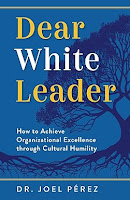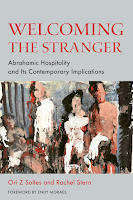Robert
Reich's Coming Up Short (2025) includes reflections on his life experiences coupled with the political evolution of the U.S., which in his estimation is "coming up short" for so many of its citizens. Reich owns his politics through the book which will not be a surprise to anyone who knows his career. While the assessment of where we are coming up short politically is dark, he does offer hope in describing students he has taught over the last years of his working life.
Reich's family benefitted from coming of age after the collapse of Gilded Age fortunes in the Great Depression, the result of which was wealth flowing to a new middle class, providing unbridled opportunity for many. The conservative perception (espoused by Ayn Rand, a prominent political commentator) of the popular Christmas story of this era,
It's a Wonderful Life, was that it was evidence of Communist infiltration. The age of a rising middle class was built at a time of growing industry, population, and people of all sorts together in new and vibrant communities.
The upheaval of the Gilded Age and birth of a middle class was ripe for McCarthyism, which was a post WWII view striving to undermine the gains of FDR's New Deal. And who was ready to aid McCarthy's project - Roy Cohn. Cohn later became useful to the emerging NYC real estate mogul Donald Trump. As a fixer and mentor to Trump, one of Cohn's most significant introductions was to Rupert Murdoch. The significance of these three men's life-long working relationship cannot be overstated.
Reich recounted many of his childhood experiences, which are entertaining while revealing his character. Because of his small stature, Reich was often the object of bullies. During the summer of his 3rd grade year, he met Mickey, a teenager vacationing in an Adirondack cabin near where Reich's family was staying. During that summer, Mickey became Reich's supporter by just being a handsome big kid to hang with. Having lost track of Mickey, the stunning revelation that Mickey Schwerner was one of three murdered "Freedom Riders" in the summer of 1964 cemented Reich's commitment to be part of the generation of Americans "called on to continue the unending search for justice within our own borders" (p. 58). The Summer of 1964 and Reich's free speech and civil rights activism brought him to see "the central struggle of civilization as fighting bullies - standing up against brutality" (p. 66).
Reich dated Hillary Clinton, got chewed out by Bobby Kennedy as a campaign volunteer, and studied with Bill Clinton as a Rhodes Scholar. Exposure to these key figures was formative but experience in a T-Group in big Sur (similar to one I experienced in Cedar City, Utah, in 1971) caused him to see his youthful experiences of being bullied as related to the violence and upheaval that was gripping America. The assassinations of John F. Kennedy and Martin Luther King, Jr., leaders who appealed to the idealism of young people and progressives, drove Americans from hope to despair.
About half-way through the book, Reich sharpened his critique that the U.S. government has shifted its focus. He said, "The real choice is who benefits by the decisions government makes about the rules of the game - people who are wealthy and privileged or those who are not, and who pays for it" (p. 258). Relaxed policies about campaign and candidate financial support have resulted in buying influence in the houses of congress and the White House. What is particularly problematic about this is that moneyed interests have shifted to maximizing their wealth rather than investing in innovation, services, improving productivity, and citizens' welfare.
Cruelty is found in individual actions as well as communities and governments. The prevailing form of cruelty in conservative politics is often based on a philosophy "that the only moral purpose of life is the pursuit of one's own happiness" (p. 81) which was foundational to the conservativism emerging in the 1970s, influenced by the philosophy of Ayn Rand. Reich retorted, "If we are losing our national identify, it is not because we are becoming blacker or browner or speak in more languages than we once did. It is because we are losing our sense of common good" (p. 87).
The battle between conservative and liberal ideas has now become a battle for big money that corrupts lawmakers as they change rules to make the rich even richer. Assuming that capitalism is the only way to prosperity and that economic benefit will eventually trickle down to others, lawmakers and moneyed interests trample over any commitment to the public good. This perspective eclipsed the idea that businesses are stewards of public trust to benefit employees and consumers and that sharing wealth through good wages for employees and reasonable prices for goods and services was an ideal to which America ascribed.
Reich peppered quotable gems throughout the book as he reflected on his personal life experience and involvement in politics. Some of my favorites include:
On parenting - Teenage boys can't be scheduled. They're like clamshells. They open just for a moment, to take in a little nourishment or expel some dirt... If you're around when they open, you have a chance to see something truly beautiful inside (p. 301).
On partisanship - Once unbottled, mass resentment can poison the very fabric of society, the moral integrity of society, replacing ambition with envy, replacing tolerance with hate (p. 305).
On journalism - If you have two guys on a stage and one guy says, "I have a solution to the Middle East problem" and the other guy falls in the orchestra pit, who do you think is going to be on the evening news? (p. 308)
On privilege - My administration is the only thing between you and the pitchforks (p. 328)
On change - Being an activist for social justice means working hard but not expecting the goals to be achieved anytime soon (p. 379).
On leadership - The long game requires a new and different conception of leadership, one in which leaders see part of their responsibility as building public trust (p. 431).
On American capitalism - The harshest form of capitalism in all the world's advanced economies. It takes almost no account for social costs and benefits (p. 426).
On youth - Instead of being bitter or angry, they have all sorts of ideas for how to clean it up, fix it, make the world better (p. 405).
On aging - ...there are four ages to life: youth, middle age, old age, and YOU LOOK GREAT (p. 458).
In the closing pages of the book Reich reflects:
Most people who "retire" stop what they call "working" and begin what they call "playing." But what if your work is also your play? What if it's your calling? What if its' deeply meaningful to you? (p. 456)
and continues...
Meaningful work - work that's more play than work - can lead to a longer life (p. 457).
Reich's reflection is in many ways a luxury that most people do not have the opportunity to obtain. There's a lot of privilege in teaching and writing but for those who are so lucky, comes the heavier responsibility of cultivating a legacy - something that shows you gave your best effort in your life's work.












